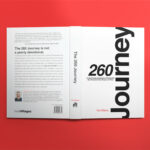Important Words To A Prostitute

Day 259
Today’s Reading: Revelation 21
Kimutchi will always have a place in my heart. She was a prostitute from the streets of Detroit who I led to the Lord. It was one of our initial conversations that forever has marked me. She used to call me Father Tim. She came to our church one day and said, “Father Tim, can you pray for me? I’m having a tough week.”
“Sure, Kimutchi,” I told her. But as I began to pray, she quickly interrupted me.
“No. You can’t pray. I have no money.”
I was puzzled. “What do you mean you have no money?”
She proceeded to tell me that certain pastors in town would charge her $25 a prayer and then would give her a Bible passage, which she’d use for playing the lottery numbers. It was a religious scam, much like the indulgences during the reformation, which Martin Luther railed against.
I explained that what they had been doing was wrong. Then I took Kimutchi to Matthew 7:21, which says, “Not everyone who says to Me, ‘Lord, Lord,’ will enter the kingdom of heaven.”
Her eyes grew wide with amazement. “That’s how you do it?” she said. “I never knew what that meant.” When Kimutchi said that, she did not mean the meaning of the verse. She meant the actual numbers on the top of the page. She did not know that “7” meant the chapter and “21” meant the verse. Then she told me over and over, “Give me one I can look up.” Then, “Give me another one.” We took a journey through the Scriptures together until she finally asked me, “Father Tim, if I give my life to Jesus, I won’t have to be on the streets any longer? I won’t have to sell myself any longer? And when I die, I won’t have to cry every day like I do?”
And that’s when I took her to today’s chapter—a chapter that came to mean everything to a prostitute. Here’s Kimutchi’s final passage that she looked up and saw the numbers 21 and 1 in Revelation:
Then I saw a new heaven and a new earth; for the first heaven and the first earth passed away, and there is no longer any sea. And I saw the holy city, new Jerusalem, coming down out of heaven from God, made ready as a bride adorned for her husband. And I heard a loud voice from the throne, saying, “Behold, the tabernacle of God is among men, and He will dwell among them, and they shall be His people, and God Himself will be among them, and He will wipe away every tear from their eyes; and there will no longer be any death; there will no longer be any mourning, or crying, or pain; the first things have passed away.” And He who sits on the throne said, “Behold, I am making all things new.” And He said, “Write, for these words are faithful and true.” (Revelation 21:1-5)
This is heaven. This is our reward. This is the climax of history. No more wars, no more pain, no more tears, no more funerals. No more cancer, no more taxes, no more racism, no more bills, no more rent, no more need for health insurance. Because God has made all things new.
Once when the great Scottish preacher and writer, George MacDonald, was talking with his family, the conversation turned to heaven. At one point, one of his relatives said, “It seems too good to be true.” To whom MacDonald replied, “Nay, it is just so good it must be true!”
It is just so good it must be true. That is heaven. That’s the place I wanted Kimutchi to know existed. And what makes heaven amazing is that “He will wipe away every tear from their eyes.” God does that.
It’s said that an Eastern Orthodox monk said these profound words about heaven: “For most Christians heaven is envisaged as a kind of postscript, an appendix to a book of which life on earth constitutes the actual text. But the contrary is true. Our earthly life is merely the preface to the book. Life in heaven will be the text—a text without end.”
Heaven is the text, not earth. C. S. Lewis’s last words, The Last Battle, which ends the seven-book series of The Chronicles of Narnia, reiterates the monk’s thoughts:
And for us, this is the end of all the stories, and we can most truly say that they all lived happily ever after. But for them, it was only the beginning of the real story. All their life in this world and all their adventures in Narnia had only been the cover and the title page: now, at last, they were beginning Chapter One of the Great Story, which no one on earth has read: which goes on forever: in which every chapter is better than the one before.
They were beginning chapter one. It was the beginning of the real story. Lewis got it. The monk got it. I need to get it. Heaven is the text, not earth.
Listen to how the apostle Paul speaks about heaven: “There’s far more here than meets the eye. The things we see now are here today, gone tomorrow. But the things we can’t see now will last forever” (2 Corinthians 4:18, MSG).
Kimutchi got saved and stopped using her prostitute name and went back to using her given, Diane. She ended up marrying a deacon at another church who had a lawn mower retail shop. My last conversation with her on the phone was when she had only months to live because AIDS had set in from years of selling her body on the streets. This precious ex-prostitute is now in heaven. And in a place where she doesn’t cry any longer, and all her pain is gone. The words on the page have now become a reality to one of my favorite people in Detroit.
When I get to heaven, I will receive much joy when I see the face of Diane (formerly Kimutchi). Her face will be dry—dry from tears.
